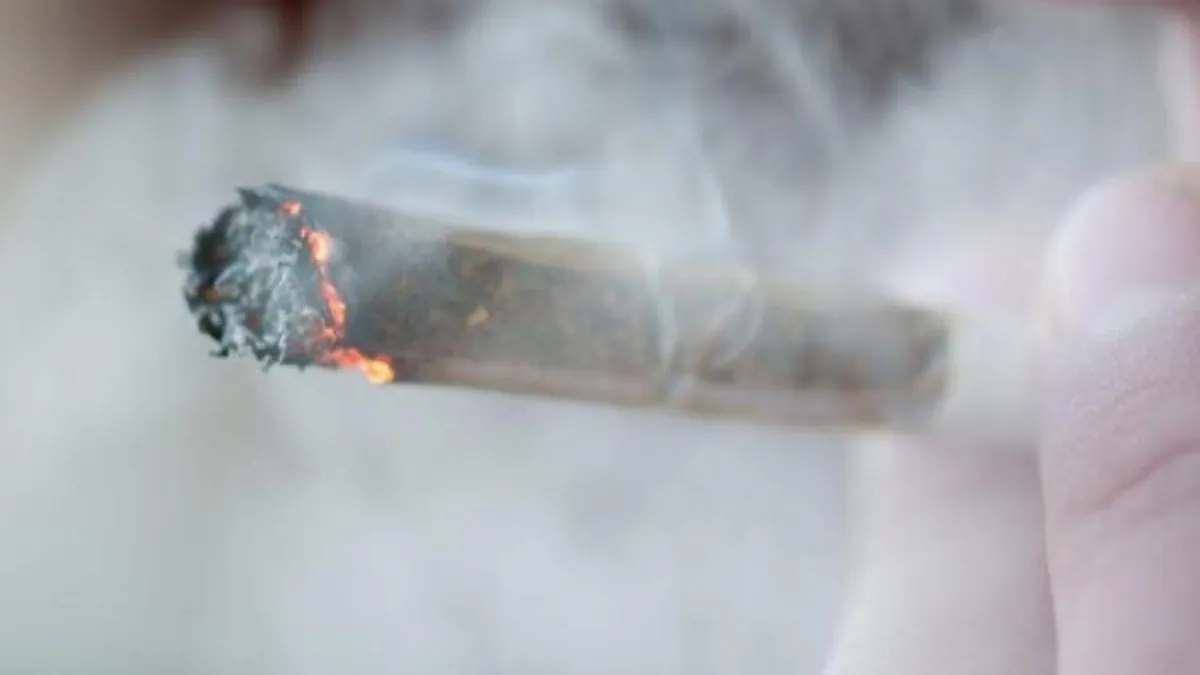Nestled in the heart of Pennsylvania lies a city that has become the unlikely epicenter of cannabis consumption in the state. With its picturesque streets and historic charm, this city may seem like an unlikely candidate for such a title. However, behind its serene facade, there’s a burgeoning trend that is capturing the attention of residents and policymakers alike: an increasing appetite for marijuana.
As debates about legalization rage on nationwide, this city’s embrace of cannabis has set it apart from the rest of Pennsylvania, sparking conversations about social attitudes and legal frameworks.
High Times in Philly: Unpacking the City’s Elevated Marijuana Use
Philadelphia, the City of Brotherly Love, may have a new title brewing: the City of Elevated Haze. A recent study by the US Drug Enforcement Administration (DEA) has revealed that Philadelphia boasts the highest rate of marijuana use among all Pennsylvania cities. This finding sends ripples through the state, prompting questions and sparking discussions about the factors behind this trend and its potential implications for the future.
High on the Data: THC Traces Tell the Tale
The DEA’s study analyzed THC levels, the psychoactive component in marijuana, found in wastewater from 50 US cities in 2020. In this ranking, Philadelphia stood tall with an average of 392 nanograms of THC per liter of wastewater, dwarfing other Pennsylvania cities like Pittsburgh (266 nanograms) and Allentown (211 nanograms). These figures paint a clear picture: Philadelphians, for whatever reason, are consuming marijuana at a significantly higher rate than their fellow Pennsylvanians.
Decriminalization: Taking the Sting Out of Possession
One significant factor contributing to Philly’s green surge is its 2014 decriminalization of marijuana possession. In the City of Brotherly Love, getting caught with up to 30 grams of marijuana no longer leads to a criminal charge, merely a $25 fine. This shift in policy has likely reduced the stigma and anxiety associated with recreational marijuana use, potentially encouraging more people to indulge.
Accessibility and Availability: A Green Market Flourishes
Beyond a relaxed legal landscape, Philadelphia’s diverse cultural tapestry plays a role in its heightened marijuana use. With multiple ethnicities and communities flourishing within its boundaries, the city hosts a wide range of opinions and preferences surrounding cannabis. This translates to a thriving black market catering to the demand, offering various strains and delivery options. Additionally, Philadelphia’s proximity to states like New Jersey and New York, where recreational marijuana is legal, might further contribute to the city’s supply and demand dynamics.
Social and Economic Threads: Weaving the Green Picture
Philadelphia, while rich in history, culture, and artistic spirit, also struggles with disparities, unemployment, and poverty. Some residents turn to marijuana for various reasons, be it seeking solace from stress and anxiety, alleviating pain and sickness, or simply finding creative inspiration and relaxation. The COVID-19 pandemic, with its economic and emotional burdens, might have further fueled this demand for relief and escape.
Potential Benefits and Risks
High marijuana use in Philadelphia brings a double-edged sword of potential consequences. On the positive side, cannabis can possess medical benefits, offering relief for ailments like inflammation, nausea, and seizures. It can also improve mood, sleep, and appetite, boosting overall well-being. If legalized and regulated, recreational marijuana could generate tax revenue, create jobs, and even attract tourism.
However, potential downsides must also be acknowledged. Marijuana use can pose health risks, impacting memory, focus, coordination, and judgment. There’s also a risk of addiction, mental health issues, and lung problems. Socially and legally, increased marijuana use might lead to more accidents, crime, and social conflicts. Additionally, individuals, especially from minority or low-income groups, might face legal repercussions, judgement, and discrimination.
The Green Road Ahead: Navigating the Uncertain Future
The future of marijuana in Philadelphia hinges on a complex interplay of legal frameworks, evolving attitudes, and individual behaviors. At the state level, Pennsylvania is considering legislation that could legalize recreational marijuana or expand the medical marijuana program. Within the city, numerous individuals and organizations are working to reshape the perception and consumption of cannabis. However, challenges remain, including the federal government’s continued prohibition, ongoing research gaps, and concerns about public safety.
Conclusion
Philadelphia’s story serves as a reminder to move beyond sensationalized headlines and delve into the intricacies of marijuana use. It’s about understanding the interplay of social and economic factors, legal landscapes, and individual needs that drive consumption patterns. It’s about acknowledging the potential benefits and risks of cannabis, navigating them responsibly, and prioritizing community well-being.
As Pennsylvania and Philadelphia grapple with the evolving cannabis landscape, the question remains: will the City of Brotherly Love embrace the Green Rush while mitigating its potential pitfalls? Only time will tell how this story unfolds, but one thing is certain – Philadelphia’s elevated Haze reveals a complex chapter in the ongoing discourse surrounding marijuana in the United States.
FAQ about Marijuana Trend in Philadelphia
- Why is Philadelphia referred to as the “City of Elevated Haze”?
A: Philadelphia gained this nickname due to its notably high rate of marijuana use, as revealed by a study conducted by the US Drug Enforcement Administration (DEA).
- What did the DEA’s study on marijuana use in Philadelphia involve?
A: The study analyzed THC levels in wastewater from 50 US cities in 2020, with Philadelphia having the highest average THC levels, indicating elevated marijuana consumption.
- What significant change in marijuana policy occurred in Philadelphia in 2014?
A: In 2014, Philadelphia decriminalized marijuana possession, making it a civil offense with a $25 fine for possessing up to 30 grams, reducing the stigma associated with recreational use.
- How does Philadelphia’s cultural diversity contribute to its marijuana trend?
A: Philadelphia’s diverse cultural tapestry influences attitudes toward cannabis, fostering a thriving black market that caters to various preferences and delivery options.
Additional Resources
Here are some resources for further information:
- National Institute on Drug Abuse (NIDA): https://www.nih.gov/about-nih/what-we-do/nih-almanac/national-institute-drug-abuse-nida
- Drug Policy Alliance: https://drugpolicy.org/
NORML: https://norml.org/




